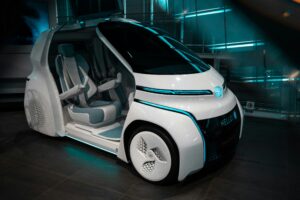Imagine a world where your refrigerator can order groceries for you before you even realize you’re running low on milk. Sounds like something out of a futuristic sci-fi movie, right? Well, the reality is not too far off. Welcome to the age of connected appliances and smart homes.
With the rise of Internet of Things (IoT) technology, everyday objects are becoming smarter and more connected than ever before. From thermostats that learn your preferences to lights that can be controlled with a simple voice command, our homes are transforming into high-tech hubs of convenience and efficiency.
According to a report by Statista, the number of connected devices in homes worldwide is expected to reach 14 billion by 2022. This trend is not just a passing fad but a significant shift in how we interact with technology and the world around us.
As our homes become increasingly connected, the implications for businesses are profound. Companies in industries ranging from appliances to utilities are adapting to this new reality, offering products and services that cater to the connected consumer.
But with great technological advancements come great responsibilities. Privacy and security concerns loom large as more devices collect and share personal data. As we embrace the benefits of a fully connected home, it’s crucial for businesses and consumers alike to prioritize data protection and cybersecurity.
The future of connected homes is bright, but it’s essential to proceed with caution and foresight to ensure a safe and seamless transition into this brave new world.



